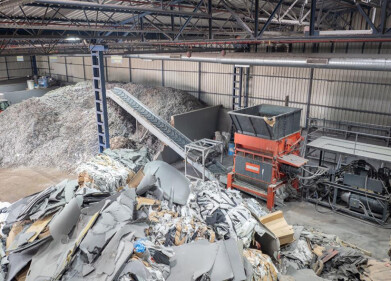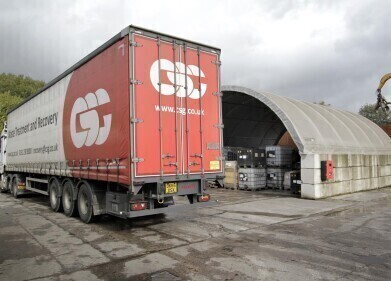Hazardous waste
Where Does Hazardous Waste Come From?
Aug 21 2022
Did you know that globally, the human race produces around 13 tonnes of hazardous waste every single second? This catch-all term covers any substance which could potentially harm the environment or pose a risk to human health, and so must be handled and disposed of in a responsible manner.
A broad definition, hazardous waste encompasses materials which are produced from industrial, commercial and household sources and can comprise solid, liquid and gaseous form. Although this is far from a comprehensive list of activities and processes which produce hazardous waste, it will introduce you to some of the major places that hazardous waste comes from.
Agriculture
Cultivating crops and rearing livestock is essential for producing enough food to feed the world’s growing population, and the use of chemical additives such as fertilisers, herbicides and pesticides has also been key in achieving food security. However, these substances can have damaging side-effects when allowed to leach into the surrounding soil and water.
Heavy metals
Heavy metals such as lead, mercury and zinc are toxic to human, animal and plant life, but they’re an indispensable component of many modern commodities, including electric batteries, smartphones, fluorescent lamps, cars and many more. Some of these materials are regarded as contaminants of emerging concern about which little is known at the present time, and if improperly disposed of, they can compromise the health of the surrounding environment and those living in it.
Industrial processes
Non-specific hazardous waste can arise from a variety of industrial processes, including refining, smelting and manufacturing other substances and products. Even the clean-up operation after the fact, which is absolutely crucial to meeting the legal obligations of the site owner, can result in the creation of hazardous waste via the use of strong chemical cleaning agents.
Household activities
The dangers of cleaning aren’t limited to industrial activities, either. Residential addresses can produce a surprising proportion of hazardous waste through everyday habits, such as cooking, cleaning and grooming. Even improper management of household waste can lead to landfill sites becoming contaminated with toxic, corrosive, reactive or flammable materials.
Pharmaceuticals
Did you know that cumulatively, British citizens spent a whopping £11 billion on pharmaceuticals in 2019? When these are discarded without being used, they can pollute waterways and upset the delicate balance of the ecosystems therein. Indeed, even when consumed as prescribed, they can survive through the body’s digestion system and become excreted into wastewater.
Wastewater
Sewage companies are charged with removing impurities from the waste produced by homes and businesses across the country and there are strict requirements they must meet. However, the sustainable future of sludge destruction has been a hot topic in environmental circles for some time and avoiding the contamination of the environment with waste materials remains a priority today.
Events
Aug 24 2025 Stockholm, Sweden and online
Aug 27 2025 Busan, South Korea
Sep 02 2025 Mexico City, Mexico
Sep 02 2025 Mexico City, Mexico
Sep 09 2025 Moscow, Russia











